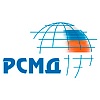Obituary: Farewell to Hal Saunders
In
Log in if you are already registered
On March 6, 2016, at the age of 86, Harold H. Saunders - our partner in the Dartmouth Conference dialogues, and our friend, who has rendered outstanding service to the resumption of Russian-American relations, passed away.
Hal, as everyone called him.
Initially a public servant, working on the National Security Council, he eventually served as the United States Assistant Secretary of State for Near East Affairs under Jimmy Carter. He witnessed and participated in the events surrounding the Six-Day War, the Yom Kippur War, as well as Kissinger's «shuttle diplomacy», and he was an architect of the Camp David Accords. He spent 444 days attempting to free American citizens, who had been taken hostage in Tehran in 1979. At last, life's path led him into the nongovernmental sector – he worked for the Brookings Institution, the Kettering Foundation, and founded the International Institute for Sustained Dialogue.
From 1981, he co-chaired the Dartmouth Conference's Regional Conflicts Task Force.
In conducting the Task Force's work, we met in very difficult years – the very heyday of the Cold War.
What was most striking about him was his capacity for empathy with another person or government and their motivations. Whenever he did not share our point of view, he, however, understood it.
Eventually, following 1979 and the Soviet Union leading military forces into Afghanistan, regional conflicts became the focal point of the aggravating confrontation between the two superpowers. Yet, it was exactly in this sphere that our cooperation blossomed. At the time, the Dartmouth Conference dialogue, which led its participants to engage particularly on the issues of Afghanistan, the Middle East and other regional conflicts, made its own modest contribution to preventing a confrontation between the two superpowers, which could have been sparked by their impulsive reactions in a perceived «zero-sum game».
Hal played an invaluable role in extending the sustained dialogue model to Tajikistan at the time of civil war there.
In fact, his readiness to focus our dialogue on the Tajik problématique was quite unexpected. We usually dealt with regional conflicts, and here was something new – a civil war in the post-Soviet space. Many seriously doubted, that the principle of sustained dialogue was applicable to a territory which had, until not long ago, been part of the same government as Russia. And just generally speaking, civil war turns people into irreconcilable enemies, to the extent that is often impossible to bring them to the negotiating table.
Hal's belief that it is still possible, and more importantly his formulation of an entire process for conducting «sustained dialogue», made a significant contribution to modern peacekeeping at a time, when new threats to global society keep arising before our eyes.
With his practical activity, he proved that mutual understanding between citizens, who feel that they carry responsibility for the fate of their nations and humanity more broadly, is indeed possible. Irrespective of which society they belong to, they are ready to engage in creative dialogue and elaborate ideas, which can be useful to their governments and societies, including those that are engaged in conflict with each other.
And one more thing about Hal.
In life, you very rarely meet an individual so capable of winning others over, so patient and able to feel deep gratitude. Gratitude is generally a rare character trait. The ability and desire to actually demonstrate it is even more rare.
Yes, we belonged to completely different cultures, but conversing with Hal over the course of decades in the context of the Dartmouth dialogues, it became absolutely clear that, all our differences in political views, proclivities and life experience notwithstanding, on a purely human level we did not feel any insurmountable obstacles dividing us.
Hal's death is a loss for all of us.
Vitaly Naumkin,
Irina Zviagelskaya
Vasily Kuznetsov




